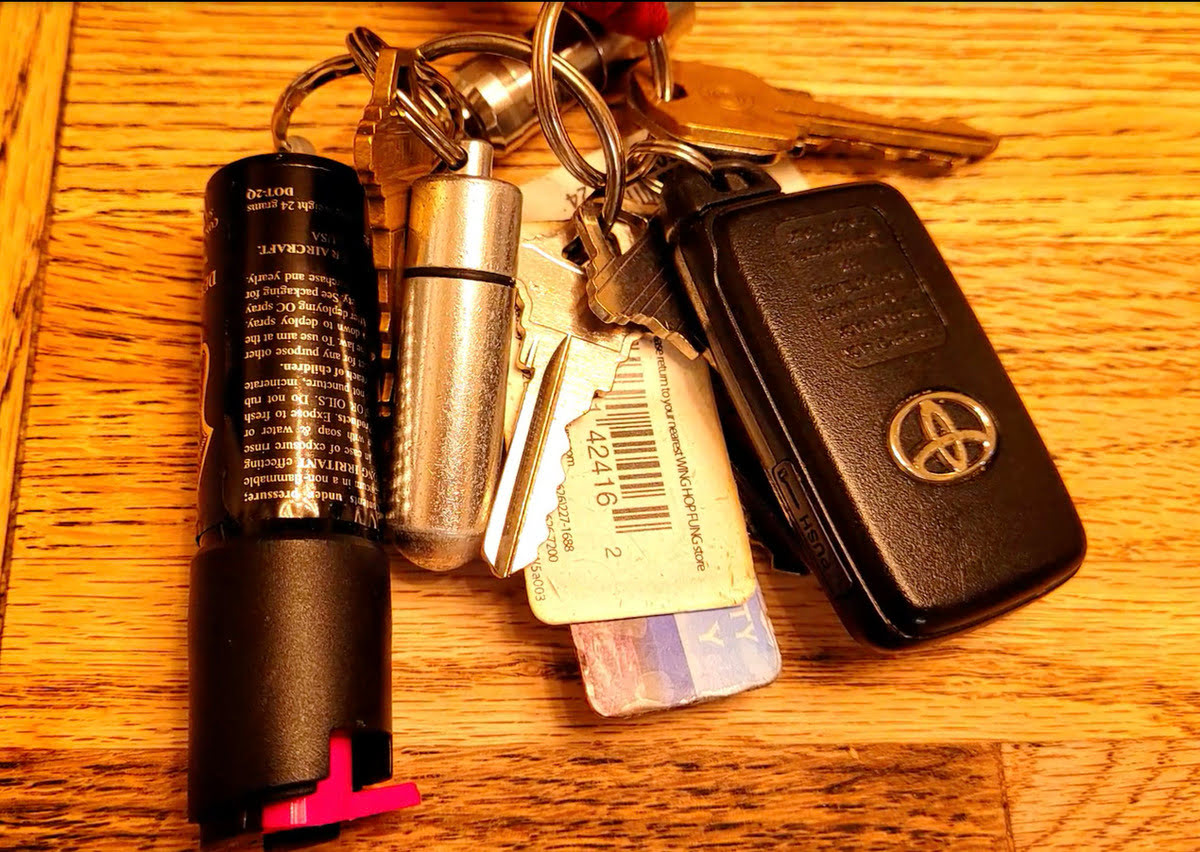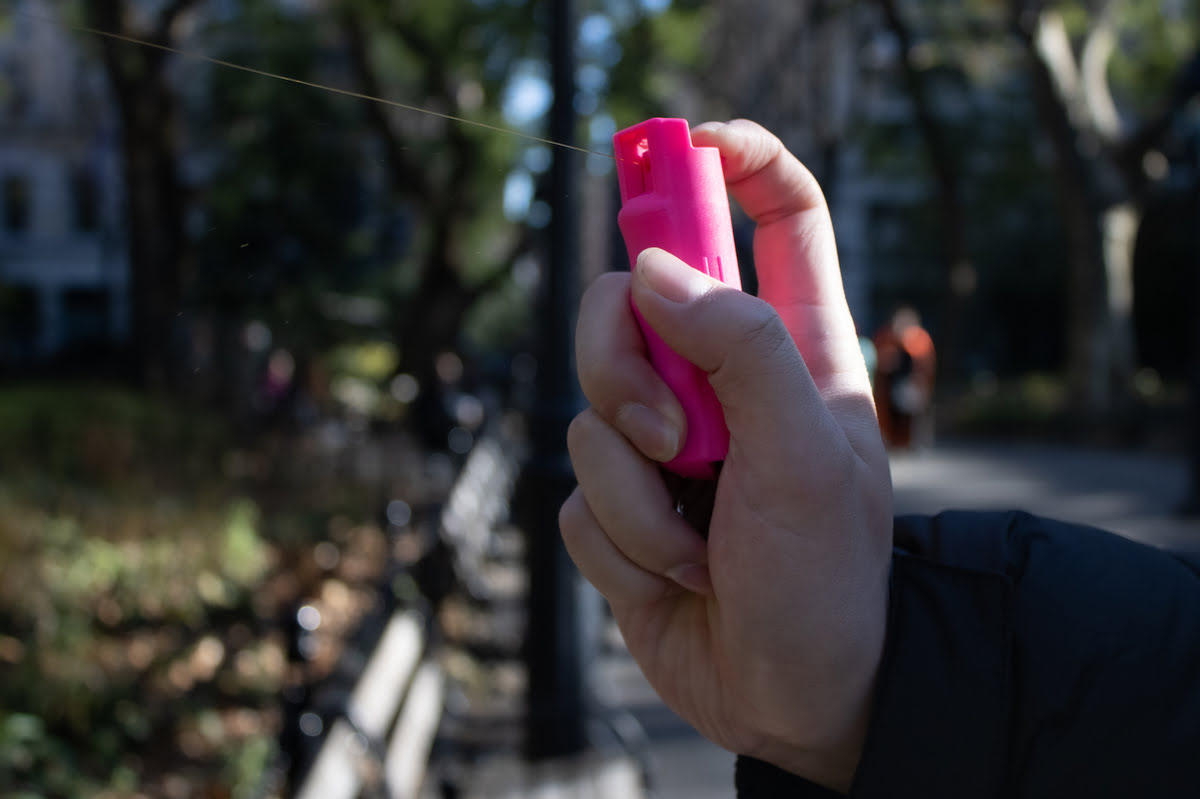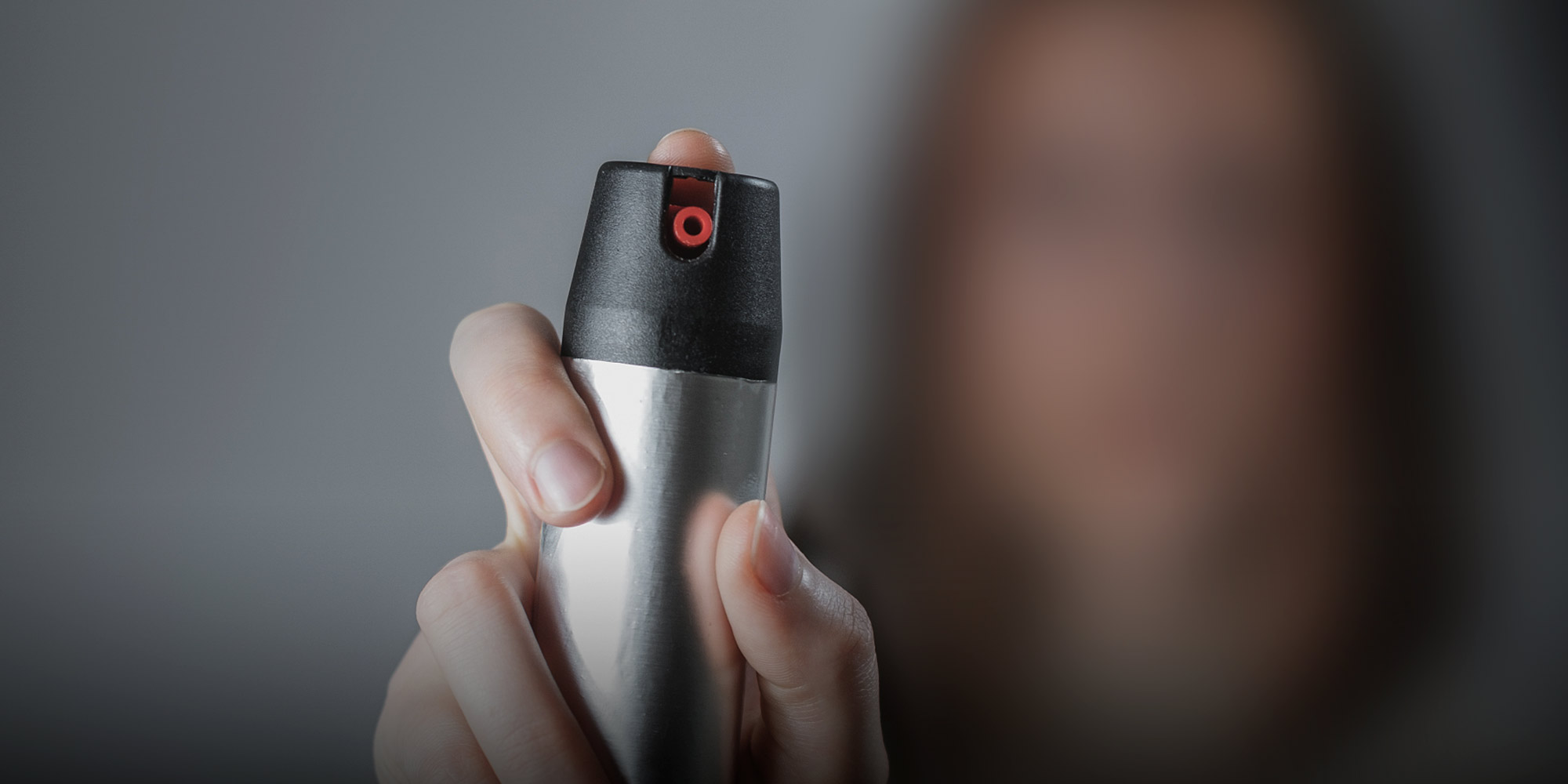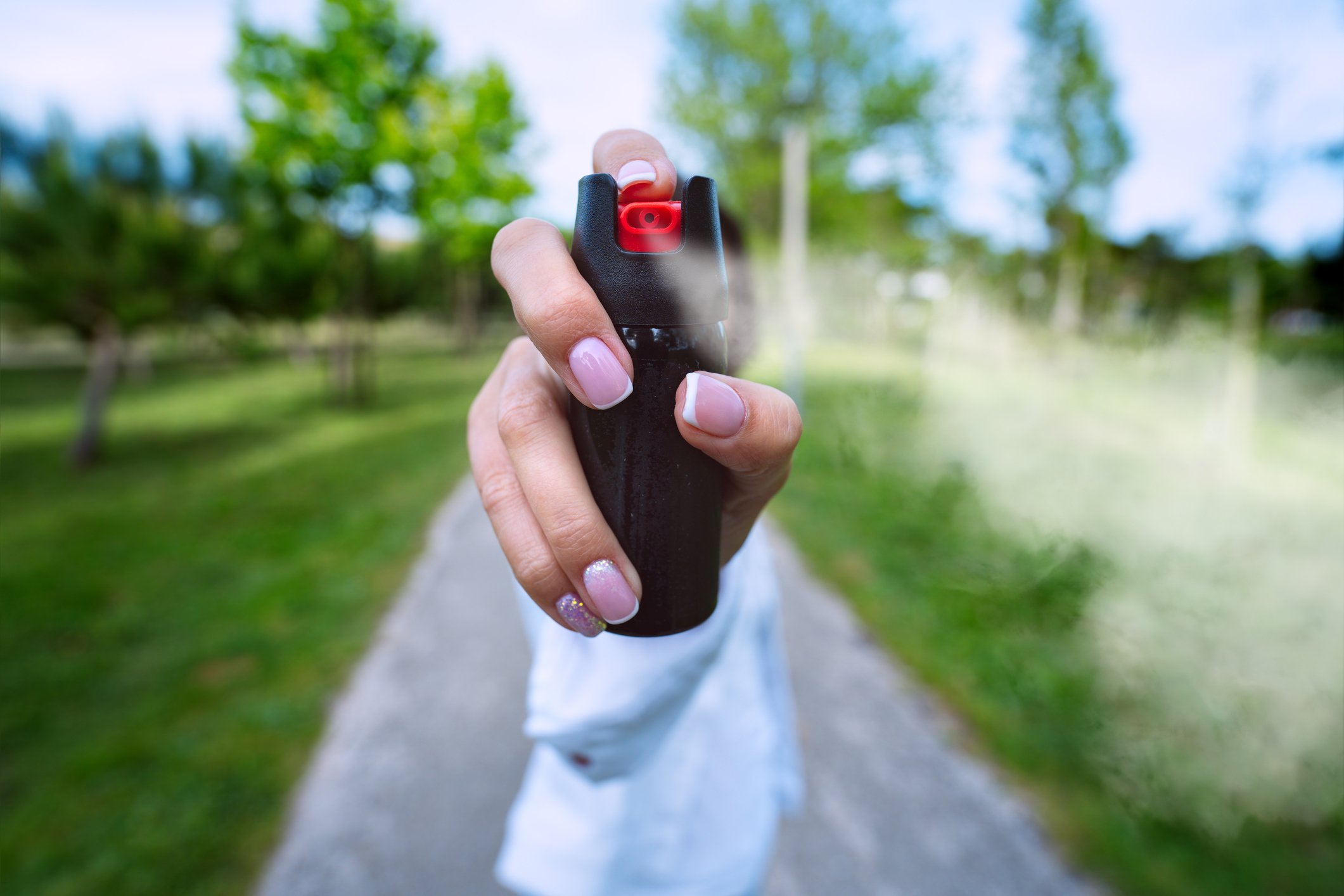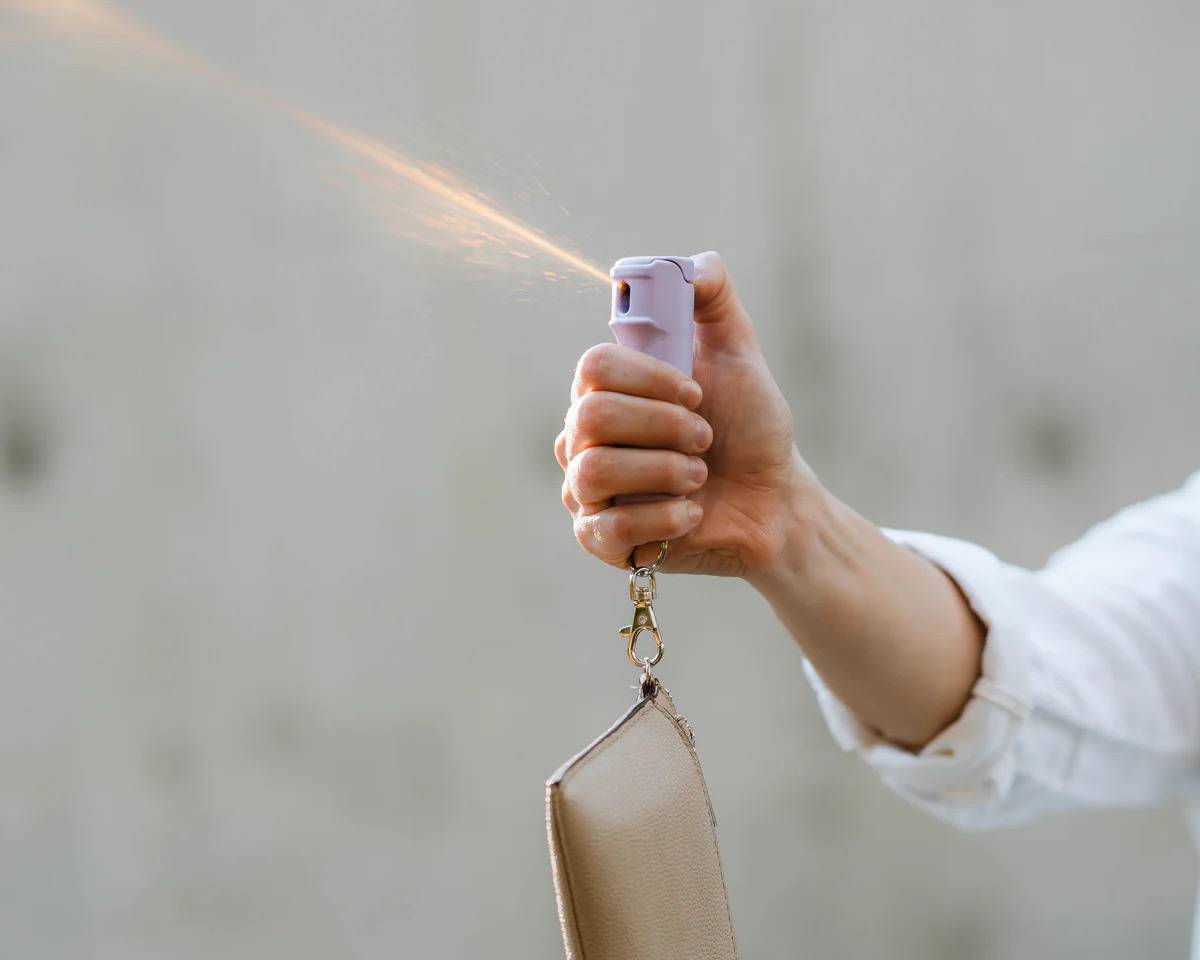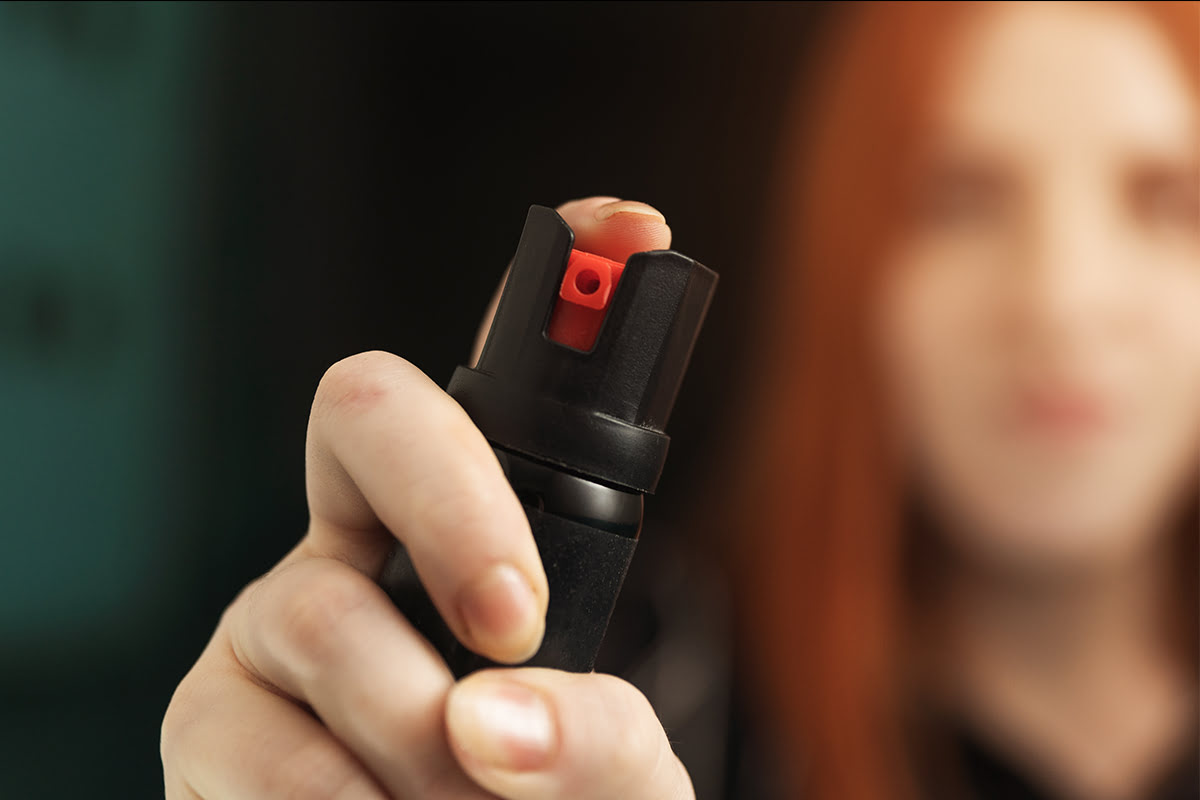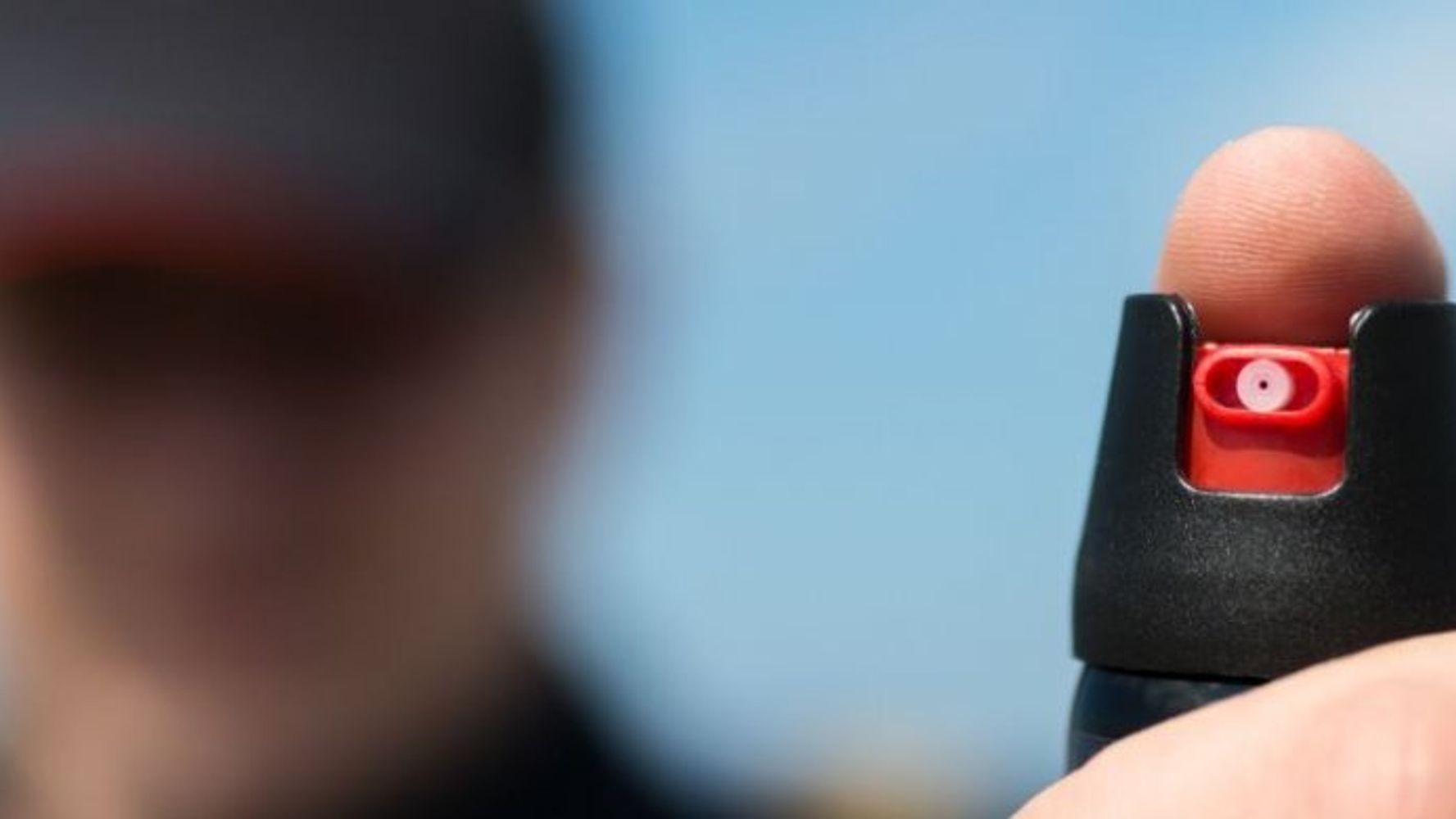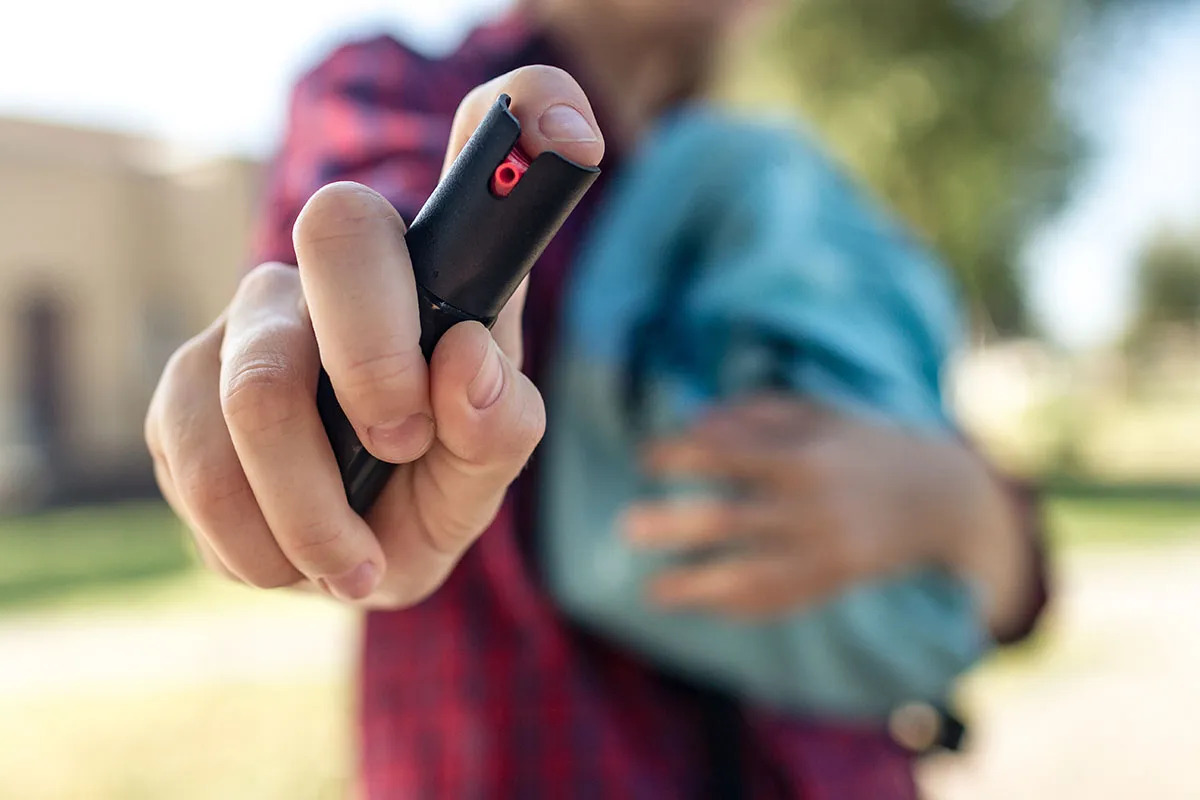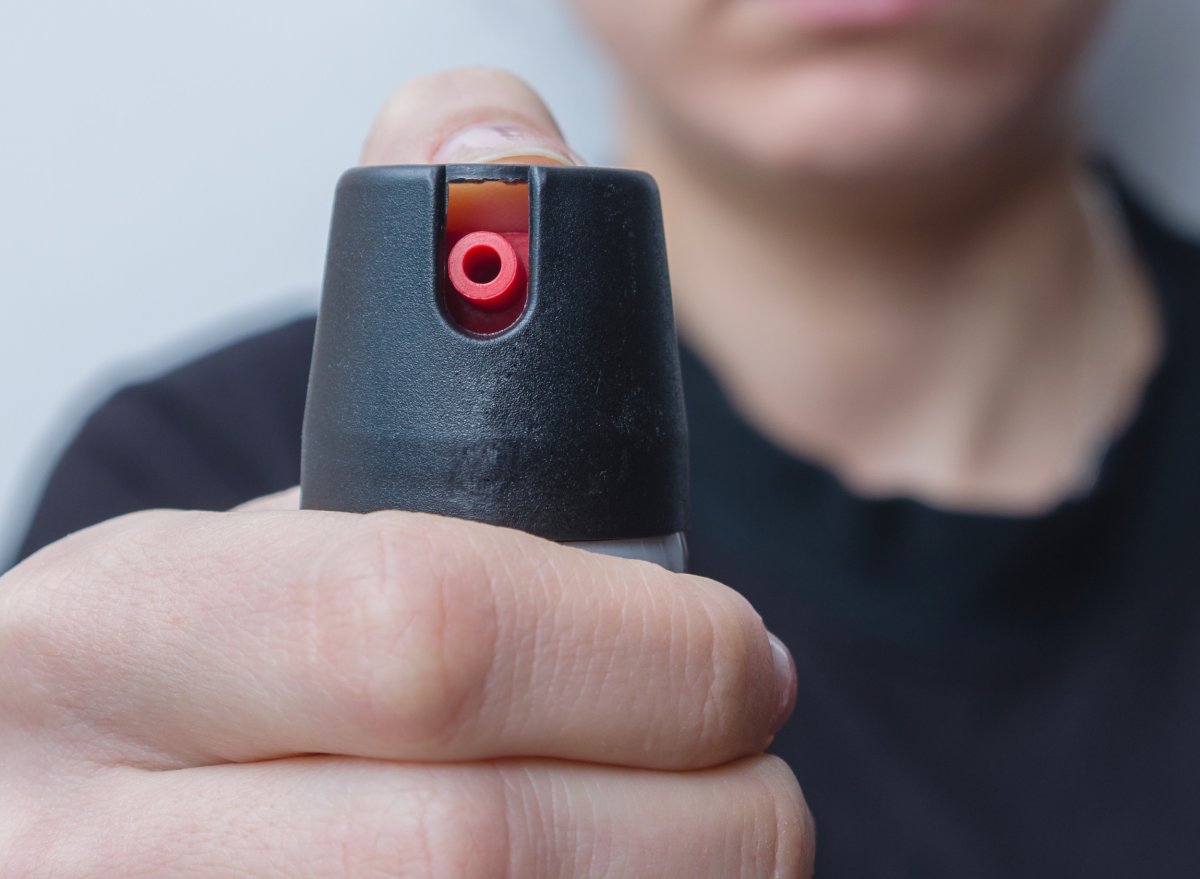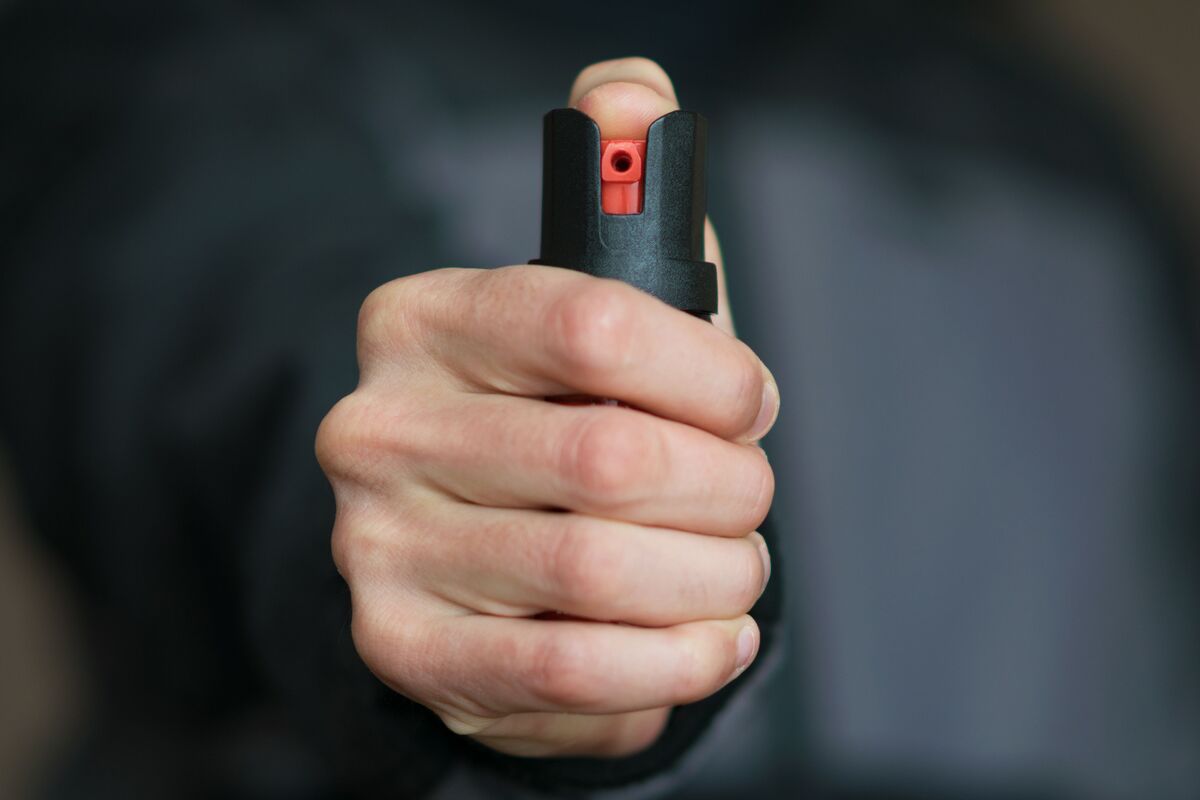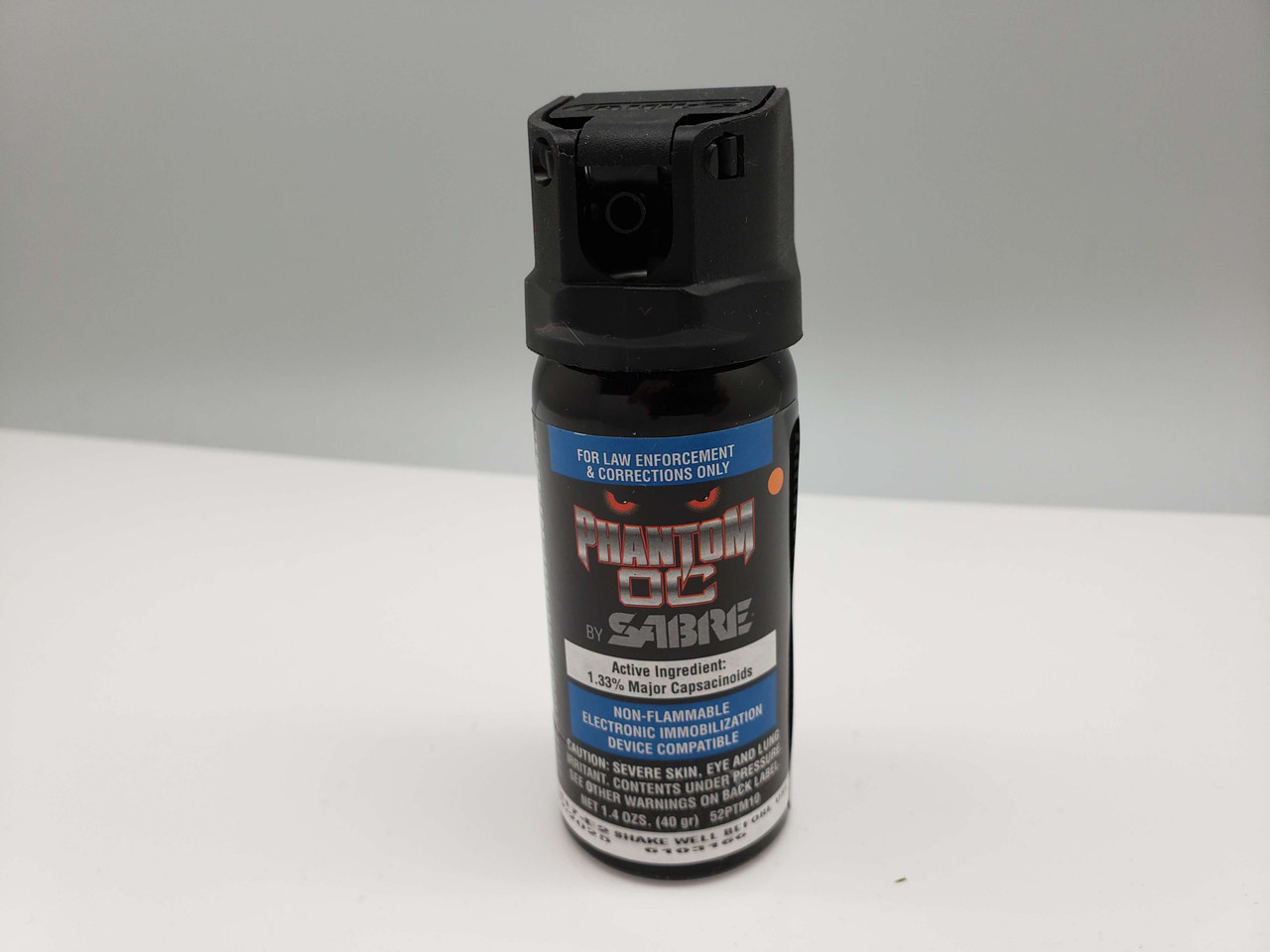Home>Home Security and Surveillance>How Long Does Pepper Spray Effects Last
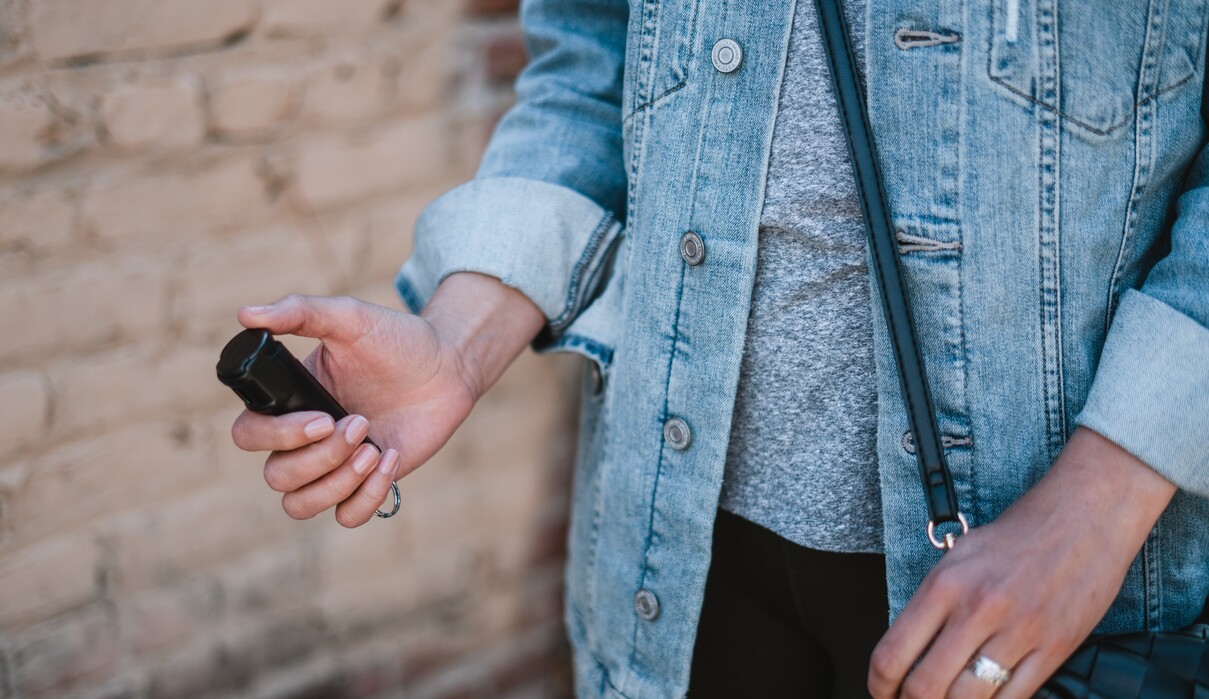

Home Security and Surveillance
How Long Does Pepper Spray Effects Last
Modified: March 6, 2024
Discover how long the effects of pepper spray last and enhance your home security with our surveillance solutions.
(Many of the links in this article redirect to a specific reviewed product. Your purchase of these products through affiliate links helps to generate commission for Storables.com, at no extra cost. Learn more)
Introduction
Welcome to our comprehensive guide on how long the effects of pepper spray last. Pepper spray is a popular self-defense tool that can incapacitate an attacker temporarily. It is commonly used by individuals, law enforcement officers, and even security personnel.
In this article, we will explore what pepper spray is, how it works, and the immediate and long-term effects it can have on an individual. Additionally, we will discuss the factors that can affect the duration of these effects and provide some safety tips on using pepper spray responsibly.
Whether you are considering purchasing pepper spray for personal protection or have already encountered it, understanding its effects and duration can help you make informed decisions and respond appropriately in case of exposure.
So, let’s dive into the world of pepper spray and discover its fascinating characteristics and the impact it can have on its targets.
Key Takeaways:
- Pepper spray causes immediate burning, eye closure, and respiratory distress, lasting 30 minutes to an hour. Lingering effects may persist for several hours, but full recovery typically occurs within a day.
- Factors like capsaicin concentration, individual sensitivity, and health condition affect the duration of pepper spray effects. Following safety tips and proper decontamination can alleviate discomfort and ensure recovery.
Read more: How Long Does Pepper Spray Last In The Air
What is Pepper Spray?
Pepper spray, also known as Oleoresin Capsicum (OC) spray, is a non-lethal self-defense weapon that delivers a concentrated dose of capsaicin, a chemical derived from chili peppers. It is designed to temporarily incapacitate an attacker by causing severe irritation to the eyes, nose, throat, and skin.
Pepper spray comes in various forms, including aerosol cans, keychain dispensers, and even concealed lipstick containers. It is widely used by individuals looking to enhance their personal safety and by law enforcement agencies worldwide as a less-lethal alternative to firearms.
The active ingredient in pepper spray, capsaicin, is derived from chili peppers and is known for its powerful irritant and inflammatory properties. When the spray is deployed, it triggers an immediate response in the body’s sensory receptors, resulting in intense burning pain, involuntary eye closure, and difficulty breathing.
It is important to note that pepper spray is legal to possess and use for self-defense purposes in most jurisdictions, but restrictions and regulations may vary. Always check the local laws and regulations before purchasing or using pepper spray.
Now that we have a basic understanding of what pepper spray is, let’s explore how it works to incapacitate an attacker.
How Does Pepper Spray Work?
Pepper spray works by exploiting the body’s natural response to capsaicin, the active ingredient in the spray. When pepper spray is sprayed onto an individual, it primarily targets the eyes, nose, and respiratory system.
When the capsaicin comes into contact with the eyes, it immediately causes intense burning, redness, and inflammation. This reaction is triggered by the activation of the TRPV1 receptors, which are responsible for pain and temperature regulation.
The intense burning sensation in the eyes leads to involuntary closure of the eyelids, making it difficult for the attacker to see and causing temporary blindness. This visual impairment can hinder the attacker’s ability to pursue or continue an assault.
Additionally, when inhaled, the capsaicin irritates the nasal passages and respiratory system. It causes swelling of the mucous membranes, which leads to severe coughing, difficulty breathing, and a sensation of choking. These effects can incapacitate the attacker by making it challenging to breathe and maintain physical exertion.
The inflammatory response triggered by capsaicin also affects the skin, causing intense burning and irritation upon contact. This can deter the attacker from physically engaging with their target, as any physical contact can intensify the discomfort.
It is important to note that pepper spray affects individuals differently based on factors such as their tolerance, health condition, and other personal characteristics. While the majority of individuals experience the aforementioned effects, some may have a higher tolerance or limited response to pepper spray.
Now that we understand how pepper spray works to incapacitate an attacker, let’s explore the immediate effects it can have on the target.
Immediate Effects of Pepper Spray
When pepper spray is deployed, the target experiences immediate and intense effects on multiple sensory systems. The severity of these effects can vary based on the concentration of capsaicin in the spray, the duration of exposure, and individual factors such as sensitivity and overall health.
Here are the immediate effects commonly associated with pepper spray exposure:
- Burning and Pain: Pepper spray causes an intense burning sensation on the skin, especially in areas where it comes into direct contact. This burning pain can be excruciating and can last for several minutes.
- Eye Irritation and Closure: The most noticeable effect of pepper spray is the immediate irritation and inflammation of the eyes. The capsaicin triggers an intense burning sensation in the eyes, which leads to involuntary closure of the eyelids. This temporary blindness can last for several minutes.
- Respiratory Distress: Inhaling the pepper spray can cause respiratory distress, including coughing, wheezing, and difficulty breathing. The capsaicin irritates the airways and can lead to temporary shortness of breath.
- Disorientation: The intense sensory overload from the burning pain, eye closure, and respiratory distress can cause disorientation and confusion. This can make it difficult for the attacker to focus or continue their assault.
- Tearing and Salivation: Pepper spray stimulates excessive tearing and salivation as the body’s natural response to the irritant. This can further impair the attacker’s vision and make it challenging for them to breathe properly.
It is essential to note that the immediate effects of pepper spray are temporary and typically subside within 30 minutes to an hour. However, the discomfort and impact can vary depending on the individual and the circumstances surrounding the exposure.
Now that we understand the immediate effects of pepper spray, let’s delve into how long these effects generally last.
Duration of Pepper Spray Effects
The duration of pepper spray effects can vary depending on several factors, including the concentration of capsaicin in the spray, the amount sprayed, the individual’s sensitivity, and the immediate response to the exposure. While the immediate effects are typically short-lived, the lingering effects can last for several hours.
Here is a general timeline of the duration of pepper spray effects:
- Immediate Effects: The immediate effects of pepper spray, such as burning pain, eye closure, respiratory distress, and disorientation, usually subside within 30 minutes to an hour. During this time, it is important to try to stay calm and avoid exacerbating the effects by rubbing the eyes or touching the affected areas.
- Lingering Effects: After the initial phase, some lingering effects may persist for several hours. These effects can include residual burning or discomfort on the skin, redness and inflammation in the eyes, and a lingering sensation of warmth or irritation in the respiratory system.
- Recovery Period: The body typically recovers fully from the effects of pepper spray within a few hours to a day. However, individual factors such as sensitivity, overall health, and any pre-existing respiratory conditions can influence the recovery time. It is crucial to seek medical attention if the effects persist or worsen over time.
It is important to note that while the effects of pepper spray diminish over time, the psychological impact of the experience can be long-lasting. Individuals who have been exposed to pepper spray may experience anxiety, fear, and emotional distress for some time after the incident.
Additionally, if pepper spray comes into contact with clothing or surfaces, it can remain active for an extended period. This can pose a risk of re-exposure if not properly decontaminated.
Understanding the duration of pepper spray effects can help individuals who have been exposed to it take appropriate measures and seek the necessary care. Now, let’s explore the factors that can affect the duration of these effects.
The effects of pepper spray can last anywhere from 30 minutes to several hours, depending on the individual’s sensitivity and the concentration of the spray. It’s important to seek fresh air, rinse the affected area with water, and avoid rubbing the area to minimize the duration of the effects.
Read more: How Long Do Pepper Spray Last
Factors That Affect Duration of Pepper Spray Effects
The duration of pepper spray effects can vary from person to person due to several factors. Understanding these factors can provide insight into why some individuals may experience longer-lasting effects compared to others. Here are the key factors that can affect the duration of pepper spray effects:
- Concentration of Capsaicin: The concentration of capsaicin in the pepper spray can influence the intensity and duration of its effects. Higher concentrations of capsaicin tend to result in more potent and longer-lasting effects.
- Amount Sprayed: The amount of pepper spray deployed directly impacts the severity and duration of its effects. Larger quantities of spray can cause more widespread irritation and potentially prolong the discomfort.
- Individual Sensitivity: Each person’s sensitivity to capsaicin can vary. Some individuals may have a higher tolerance, while others may be more sensitive to its effects. Those who are more sensitive may experience longer-lasting effects.
- Health and Overall Condition: Individual health conditions and overall physical well-being can influence the body’s response to pepper spray. Individuals with pre-existing respiratory conditions or compromised immune systems may experience more prolonged effects.
- Proximity and Duration of Exposure: The proximity to the source of the spray and the duration of exposure also play a role. Close-range exposure may result in a more intense and longer-lasting impact, while brief exposure may lead to milder and shorter-lived effects.
- Environmental Considerations: Environmental conditions can influence the overall duration of pepper spray effects. Factors such as humidity, wind, and temperature can either prolong or expedite the dissipation of the irritant from the air and affected surfaces.
It is important to remember that the effects of pepper spray are temporary, and the majority of individuals will recover fully within a few hours. However, individual factors can influence the duration and intensity of these effects.
Now that we have explored the factors that can affect the duration of pepper spray effects, it is essential to understand how to safely use and handle pepper spray. Please continue reading for some important safety tips.
Safety Tips When Using Pepper Spray
Pepper spray is an effective self-defense tool when used responsibly. To ensure your safety and the safety of others, it is crucial to follow these safety tips when using pepper spray:
- Know the Laws: Familiarize yourself with the local laws and regulations regarding the possession and use of pepper spray in your area. Different jurisdictions may have specific restrictions or requirements.
- Choose the Right Formulation: Select a pepper spray product that is appropriate for your needs. Consider factors such as the concentration of capsaicin, range, and ease of deployment.
- Read and Follow Instructions: Carefully read and understand the instructions provided by the manufacturer. Familiarize yourself with the proper techniques for effectively using the spray.
- Practice Proper Aim and Technique: Practice using your pepper spray in a safe and controlled environment. Familiarize yourself with aiming at the attacker’s eyes and using short bursts to minimize waste and maximize effectiveness.
- Be Mindful of Wind Direction: When using pepper spray outdoors, consider the direction of the wind. Ensure that it is not blowing toward you or any innocent bystanders, as it can inadvertently affect others.
- Maintain a Safe Distance: Keep a safe distance from the attacker while deploying the spray. This will minimize the risk of physical contact and potential counterattacks.
- Be Aware of Environmental Factors: Take into account any environmental factors that may affect the effectiveness of the spray, such as wind, rain, or extreme temperatures.
- Avoid Using Aggressively: Pepper spray should only be used as a means of self-defense when you are faced with an imminent threat. Do not use it to provoke or escalate a situation unnecessarily.
- Practice Situational Awareness: Be mindful of your surroundings and maintain situational awareness. Pepper spray should be used as a last resort and only when you feel that your personal safety is at risk.
- Seek Medical Attention if Necessary: If you or someone else has been exposed to pepper spray and experiences severe or prolonged effects, seek immediate medical attention. Follow any guidance provided by medical professionals.
By following these safety tips, you can ensure the responsible and effective use of pepper spray as a self-defense tool. Remember, the goal is to protect yourself and others while minimizing harm.
In the unfortunate event that you are exposed to pepper spray, it is important to know what to do afterwards. Continue reading to find out the necessary steps to take.
What to Do After Being Exposed to Pepper Spray
If you have been exposed to pepper spray, it is important to take the following steps to alleviate the discomfort and ensure your safety:
- Move to Fresh Air: If possible, quickly move away from the area where the pepper spray was deployed to minimize further exposure to the irritant.
- Keep Eyes Open: Although it may be instinctive to close your eyes, try to keep them open to allow fresh air to flush out the irritant. Blink rapidly to help tear production and flush out the capsaicin.
- Do Not Rub Your Eyes: Refrain from rubbing your eyes, as this can exacerbate the burning sensation. Instead, gently rinse your eyes with cool water or use a saline solution to flush out the irritant.
- Remove Contaminated Clothing: If the pepper spray has come into contact with your clothing, remove it as soon as possible to prevent further irritation or re-exposure. Put it in a sealed bag to contain the irritant.
- Cleanse Affected Areas: Use a mild soap and cool water to cleanse any areas of your skin that may have been exposed to the spray. Avoid using hot water, as it can intensify the burning sensation.
- Apply a Cold Compress: To alleviate the burning and inflammation, apply a cold compress or a clean damp cloth to the affected areas. This can help reduce discomfort and swelling.
- Avoid Touching Face: Try to avoid touching your face, especially your eyes, with your hands, as they may still carry traces of the irritant. Wash your hands thoroughly with soap and water.
- Seek Medical Attention if Needed: If you experience severe or prolonged effects, such as difficulty breathing, intense pain, or persistent eye irritation, seek immediate medical attention.
- Decontaminate Exposed Surfaces: If the pepper spray has affected any surfaces, such as furniture or objects, clean them with mild soap and water to remove any residual capsaicin.
- Monitor and Take Care: Keep an eye on your symptoms and monitor your condition after being exposed to pepper spray. Rest, drink plenty of fluids, and take any recommended over-the-counter remedies, such as antihistamines, to alleviate discomfort.
Remember, the effects of pepper spray are typically temporary and will subside with time. However, if you have concerns or if the symptoms persist or worsen, do not hesitate to seek professional medical advice.
Now that we have covered what to do after being exposed to pepper spray, let’s wrap up our comprehensive guide.
Conclusion
Pepper spray is a widely used self-defense tool that can provide a temporary advantage in personal safety situations. It works by causing intense burning and irritation to the eyes, nose, and respiratory system, temporarily incapacitating the attacker.
In this comprehensive guide, we have explored the fundamentals of pepper spray, including its composition, how it works, and the immediate and lingering effects it can have on individuals. We’ve also discussed the duration of these effects, factors that can affect their duration, and provided safety tips for responsible usage.
It is important to remember that while pepper spray can be an effective self-defense tool, it should be used responsibly and in accordance with local laws and regulations. Understanding its effects, practicing proper usage techniques, and prioritizing safety are essential for both users and potential targets.
In the event of exposure to pepper spray, following proper decontamination techniques, seeking medical attention if necessary, and taking care of oneself afterward can help alleviate the discomfort and ensure a full recovery.
Stay informed, stay safe, and always prioritize personal safety when considering the use of pepper spray. By arming yourself with knowledge and taking appropriate precautions, you can enhance your personal safety and navigate potentially dangerous situations with confidence.
Thank you for taking the time to read our guide on the duration and effects of pepper spray. Stay empowered and stay safe!
Frequently Asked Questions about How Long Does Pepper Spray Effects Last
Was this page helpful?
At Storables.com, we guarantee accurate and reliable information. Our content, validated by Expert Board Contributors, is crafted following stringent Editorial Policies. We're committed to providing you with well-researched, expert-backed insights for all your informational needs.
